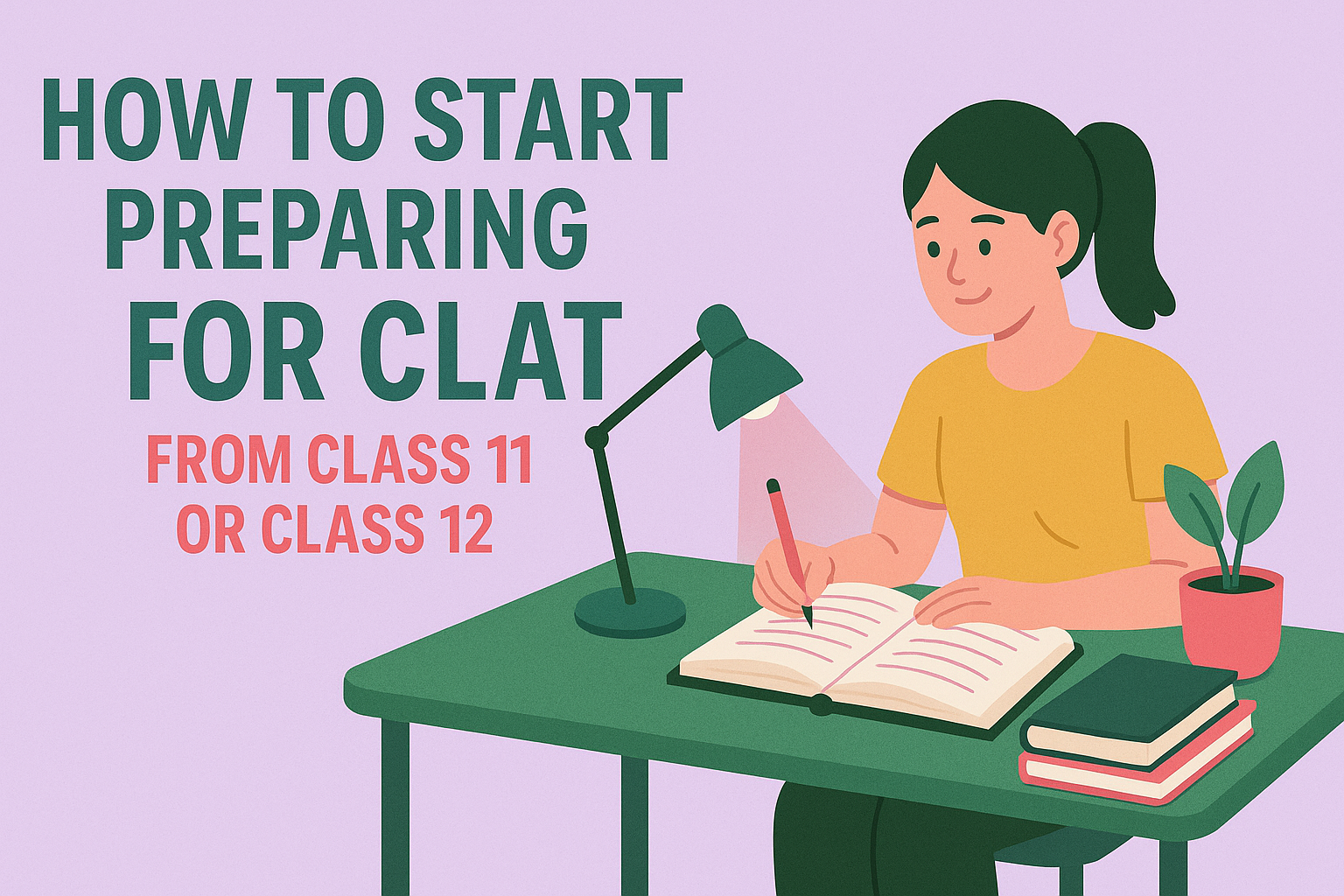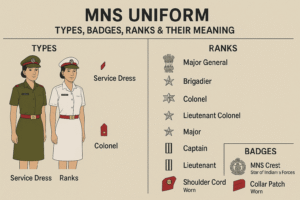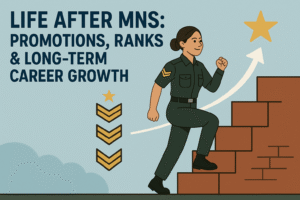INTRODUCTION
If you’re in Class 11 or Class 12 and aspiring to become a lawyer, starting your CLAT preparation early can be a game-changer. The Common Law Admission Test (CLAT) is the gateway to India’s premier National Law Universities (NLUs), and beginning your journey in school gives you a significant edge over last-minute competitors.
This guide offers a detailed roadmap on how to start preparing for CLAT from Class 11 or 12, balancing school and entrance preparation, and building the right habits for long-term success.
WHY START EARLY FOR CLAT?
1. Time Advantage
You get 2 full years (if you start in Class 11) or at least a year (if in Class 12) to build concepts, revise, and take mocks—reducing exam pressure.
2. Strong Foundation
Starting early allows you to build a strong foundation in English, logical reasoning, current affairs, and legal aptitude—core sections of CLAT.
3. Balanced Preparation
You can comfortably manage both board exams and CLAT preparation without burning out.
CLAT 2025/2026 EXAM STRUCTURE (FOR SCHOOL STUDENTS)
| Section | Number of Questions | Weightage |
|---|---|---|
| English Language | 22–26 | ~20% |
| Current Affairs & GK | 28–32 | ~25% |
| Legal Reasoning | 28–32 | ~25% |
| Logical Reasoning | 22–26 | ~20% |
| Quantitative Techniques | 10–14 | ~10% |
| Total | 120 | 100% |
Type: Comprehension-based MCQs
Marking Scheme: +1 for correct, -0.25 for wrong answers
Duration: 2 hours
STEP-BY-STEP GUIDE TO START CLAT PREPARATION FROM CLASS 11 OR 12
1. Understand the Exam Pattern and Syllabus
Begin by familiarizing yourself with the CLAT exam pattern, question types, and sections. Visit the official CLAT Consortium website regularly for updates and sample papers.
2. Create a Realistic Study Schedule
Make a plan that includes both school subjects and CLAT topics:
Weekdays: 1–2 hours for CLAT (focus on English, GK, or reasoning)
Weekends: 3–4 hours for practice and mock tests
3. Start Reading Newspapers Daily
Develop a habit of reading ‘The Hindu’ or ‘The Indian Express’. Focus on:
Legal news
Editorials
National & International events
Make notes and revise current affairs weekly.
4. Build Vocabulary and Grammar
Use resources like:
Word Power Made Easy by Norman Lewis
A personal vocabulary notebook
Online quizzes to reinforce grammar
5. Practice Legal Reasoning Basics
Though no prior legal knowledge is needed, learn:
Basic legal terms
Constitution fundamentals
Legal principles and their applications
6. Master Logical and Analytical Reasoning
Topics to focus on:
Critical reasoning
Puzzles and syllogisms
Statement-conclusion and assumptions
Practice with MK Pandey or RS Aggarwal
7. Strengthen Basic Mathematics
CLAT asks 10–14 questions from Class 10-level math. Cover:
Percentages, Ratios, Averages
Graph and data interpretation
Profit & loss, time & work
Use NCERT books and RS Aggarwal Quantitative Aptitude
8. Join a Foundation Course or Online Class (Optional)
If possible, join a CLAT foundation batch for Class 11–12 students. Choose a reputed institute that focuses on:
Concept-building
Doubt-clearing sessions
Mock test series
9. Take Weekly Mock Tests and Sectional Quizzes
Start slow with sectional tests. As you progress, attempt monthly mock tests and analyze:
Accuracy
Time taken
Strong and weak areas
10. Stay Consistent and Revise Regularly
Revise weekly:
Vocabulary words
Current affairs
Legal principles
Short notes and formula sheets
BEST BOOKS FOR CLAT PREPARATION FROM CLASS 11 OR 12
English Language
Word Power Made Easy – Norman Lewis
English is Easy – BSC Publishing
CLAT past year papers
General Knowledge and Current Affairs
Lucent’s GK
Manorama Yearbook
Daily newspapers and monthly compilations from coaching portals
Legal Reasoning
Legal Aptitude – AP Bhardwaj
Universal’s Guide to CLAT
Logical Reasoning
Analytical Reasoning – MK Pandey
Verbal and Non-Verbal Reasoning – RS Aggarwal
Quantitative Techniques
Class 9 and 10 NCERT Math Books
Quantitative Aptitude – RS Aggarwal
TIPS TO BALANCE CLAT PREP WITH SCHOOL STUDIES
Use school holidays for intensive revision and mocks
Don’t ignore board exam subjects
Dedicate a fixed time daily to CLAT without skipping
Don’t panic—CLAT rewards smart, not just hard work
FREQUENTLY ASKED QUESTIONS (FAQS)
Q1. Is Class 11 too early to start CLAT preparation?
A: No. In fact, starting in Class 11 is ideal. You get time to build concepts gradually and improve through practice without pressure.
Q2. Can I prepare for CLAT along with Class 12 board exams?
A: Yes. You’ll need a smart study plan, but many students crack CLAT while preparing for their boards.
Q3. Is coaching necessary from Class 11?
A: Not mandatory. Many students succeed with self-study. However, coaching can provide structure, guidance, and regular testing.
Q4. What should I focus on the most in the beginning?
A: Focus on English, reading habits, and current affairs. These areas take time to improve and are essential across all sections.
Q5. How many hours should I study for CLAT in Class 11 or 12?
A: Around 1–2 hours daily in Class 11 and 2–3 hours daily in Class 12, increasing intensity closer to the exam.
CONCLUSION
Starting CLAT preparation from Class 11 or 12 gives you the early advantage most aspirants miss. With the right planning, consistent efforts, and smart resources, you can crack CLAT in your first attempt and secure a seat in top NLUs.






